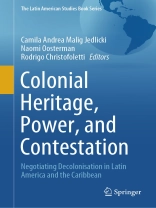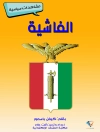Recent debates about the return of colonially looted heritage have furthered the discussions on decolonisation around the world, and have reignited questions surrounding “what is, and who owns, cultural heritage”. These discourses in the meaning, production and management of heritage – with a growing presence of themes that address “Latinities” – have gained greater visibility in Latin America and the Caribbean, as challenges surrounding cultural heritage arise more prominently worldwide. The attention on this region aims to contextualise the various theoretical, empirical, and critical perspectives in relation to the negotiation of decolonisation. Hence, this book focuses on the analysis of diverse modes of confronting the power underlying colonial heritage that can contribute to pushing boundaries and persuading changes in pre-established definitions of political thought and local identities. To this end, the chapters in this book focus on a wide scope of topics, ranging from the repatriation and restitution of cultural heritage, and diasporic movements to decolonial practices around monuments, museums, and education. In so doing, this volume challenges stereotypes that made Latin America and the Caribbean a space of mere reproducibility of external ideas, and instead provides a space to show current decolonial perspectives and practices developed in the region that will enrich the international debate on the contestation of colonial legacies and decolonisation of cultural heritage.
Daftar Isi
Part 1: Paths of Decolonisaton.- Geoepistemology of Heritage. For a Circular Culture from Latin America.- Lusotopia: Cultural Heritage, Coloniality and Resistance.- Current Times, Critical, and Future Thinking: Contribution to Rights-Led Approaches to Heritage.- Patrimonialization and Decoloniality: The Contributions of The Registration of Immaterial Cultural Goods in Brazil.- Caring for Black Monuments: Decolonial Heritage Practices in Havana and Cárdenas.- Burning Monuments: The Debate on the Decolonization of Memory in Contemporary Brazil.- Part 2: Restitution and Repatriation of Cultural Objects.-Restitution and Repatriation of Cultural Objects: Repatriation of Cultural Assets and their Museological Use from a Post-colonial Perspective.- Restitution of Indigenous Cultural Objects in Latin America: NAGPRA as a Model?.- The Reason for the Artefact: Collective Memory in the Repair Policy for Illicitly Trafficked Cultural Goods.- (De)colonially Negotiating the Past: The Quimbaya Treasure Between the Gift and the Return Requests from Colombia to Spain.- The Veins of Latin America Remain Open: The Movement of Cultural Goods and Colonialities.- Part 3: Museums, Discourses, and Power.- Decolonial Approaches to Cultural Heritage in Latin American Museums.- Andean Colonial Paintings: A Space on Negotiation?.-Entangled Heritage: National Museums, Colonialism and African Objects in Diaspora.- Paths of Anti-racist Toponymy: Renaming Places in the Little Africa Region in Rio de Janeiro.- The Trajectory of Latin American Artefacts through European “places of memory”: Tupinambá Mantles and Moche “huacos”.- Part 4: Frontiers of Decoloniality.- Decolonialism, Paulo Freire and the Triangular Approach.- Coloniality, Race, and Indigenous Knowledge in Reports of 19th Century Explorers in Southern Brazil.-Quilombola Mesquita Community: Ethnic Resistance and Decoloniality.- Tumbe. Afrodiasporic Arts in the Andean.- “A Symbol of Union and Peace Among American Nations”: Inter-American Relations, Historical and Cultural Heritage in the 1940s.- Writing with Eight Hands. The Historical Exhibition of the Commemorations of the IV Centenary of São Paulo City: Disputes Around Cultural Heritage.- The Mirror of Modernity: Brazilian Modernist Architecture Recognized as World Heritage Sites.












